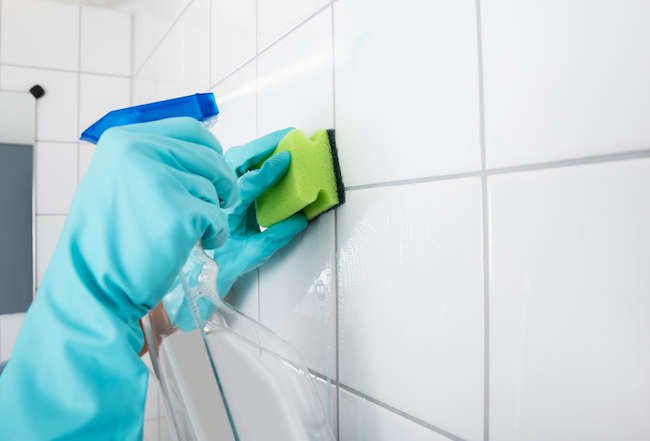

We may earn revenue from the products available on this page and participate in affiliate programs. Learn More ›
Home Advice You Can Trust
Tips, tricks & ideas for a better home and yard, delivered to your inbox daily.
Versatile Vinegar
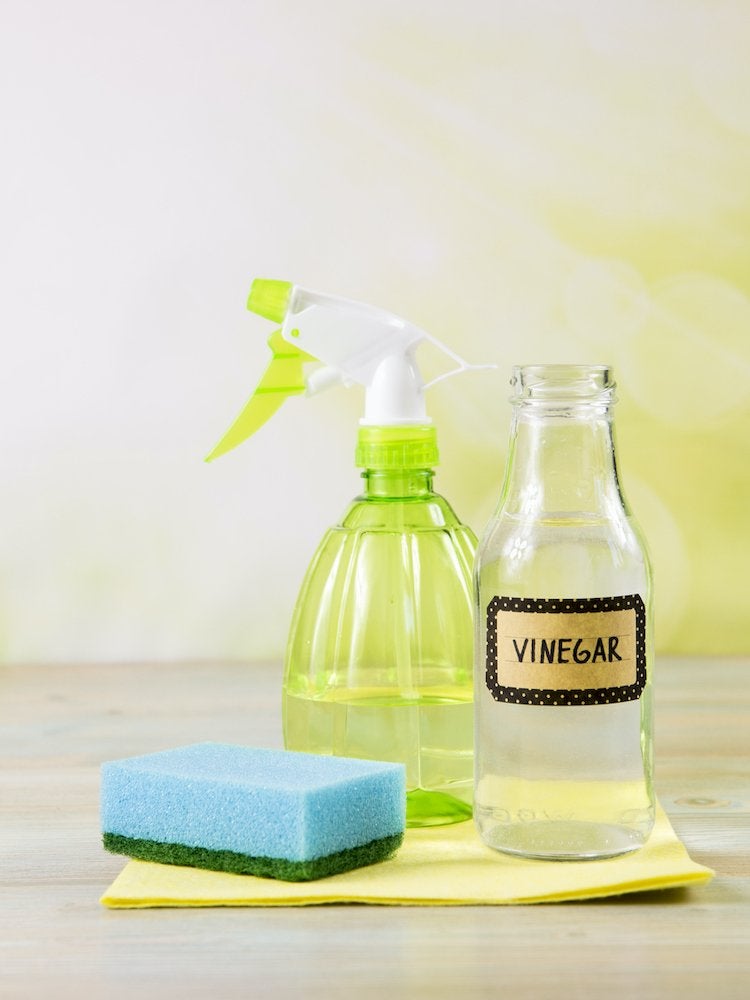
One of the best products you can get for your house might already be in your pantry: vinegar. Beyond being a popular ingredient for meal prep, there’s a long list of household uses for it.
Thanks to its high acidity, vinegar is a versatile household product. It can get rid of stains, cut through crud, and be used in the garden. While there are many different types of vinegar, white vinegar and apple cider vinegar are the best choices for being a potent cleaner without damaging surfaces.
Not convinced that you can replace your chemical cleaners for a bottle of vinegar? Read on for 29 ways you can use vinegar around the house.
Control Insects in the Garden
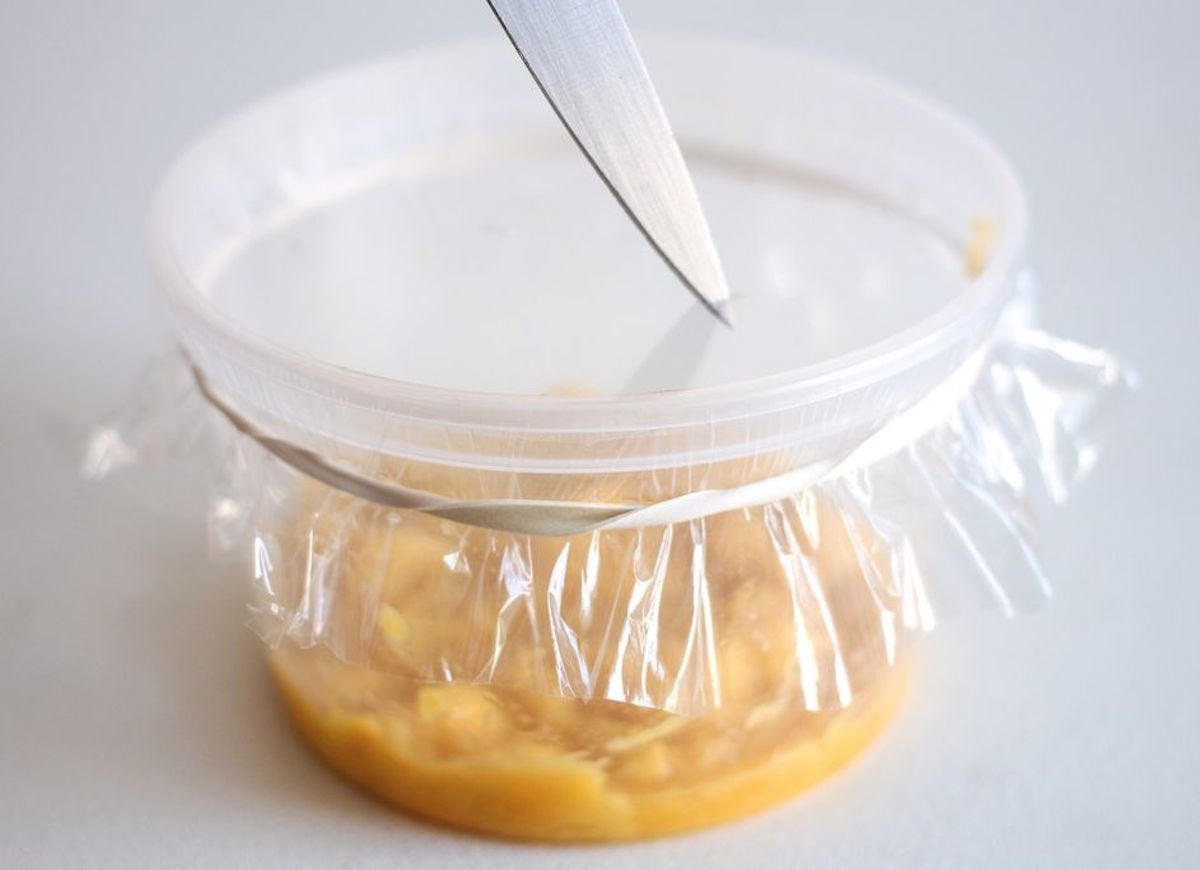
instructables.com via NoFiller under Creative Commons
Create an earth-friendly insect trap by filling a closed container with a cup of apple cider vinegar. Add in small slices of banana peel and 1 cup of cold water, and then shake. Poke holes around the top and place it on the kitchen counter near a fruit fly infestation. You’ll be catching critters in no time. Discard the trap and replace it with a new one when it gets, um, too gross.
Wash Your Dishwasher
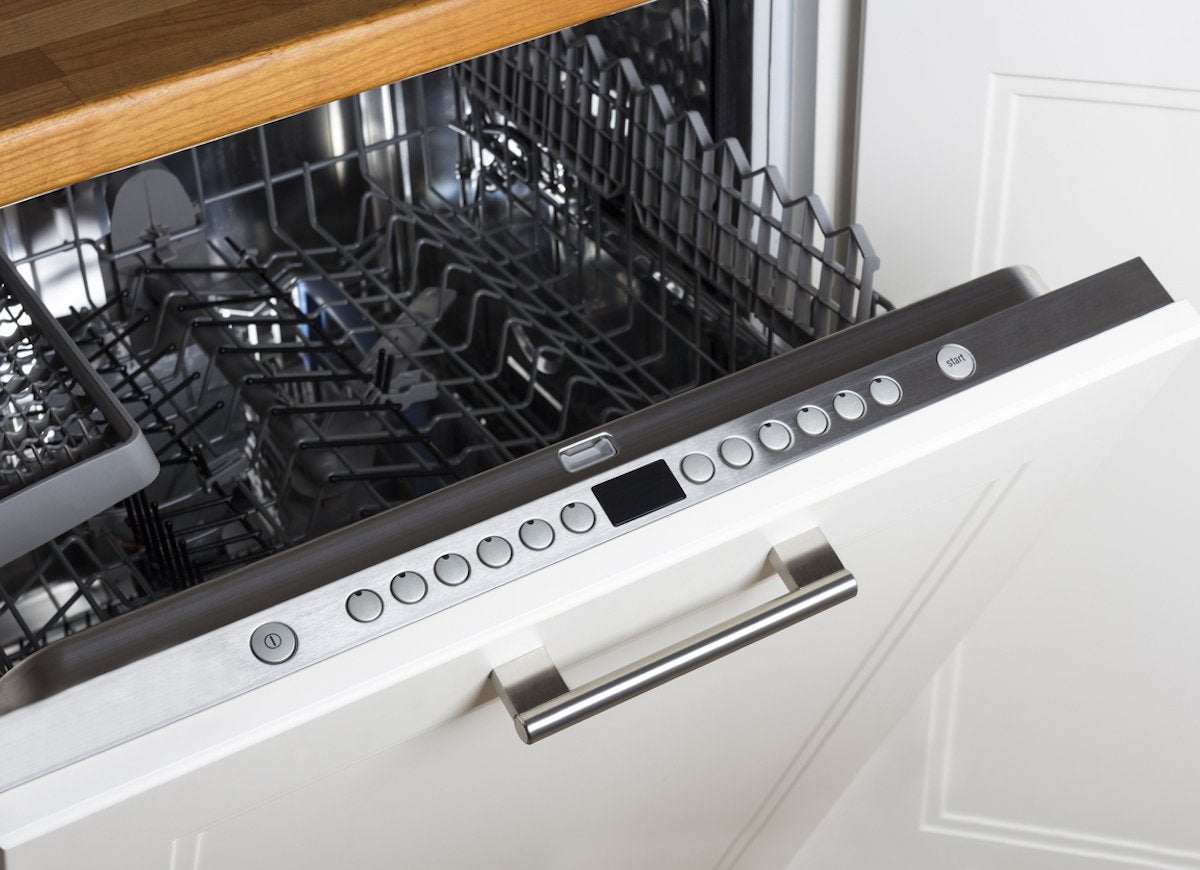
Your dishwasher washes all the food residue off your dishes. But who washes the dishwasher? You can, by pouring 1 cup of vinegar into the bottom of the tub and running it through a cycle without any dishes. Doing this once every month or two will remove built-up soap residue and keep it in squeaky clean shape.
Clean Your Shower Heads
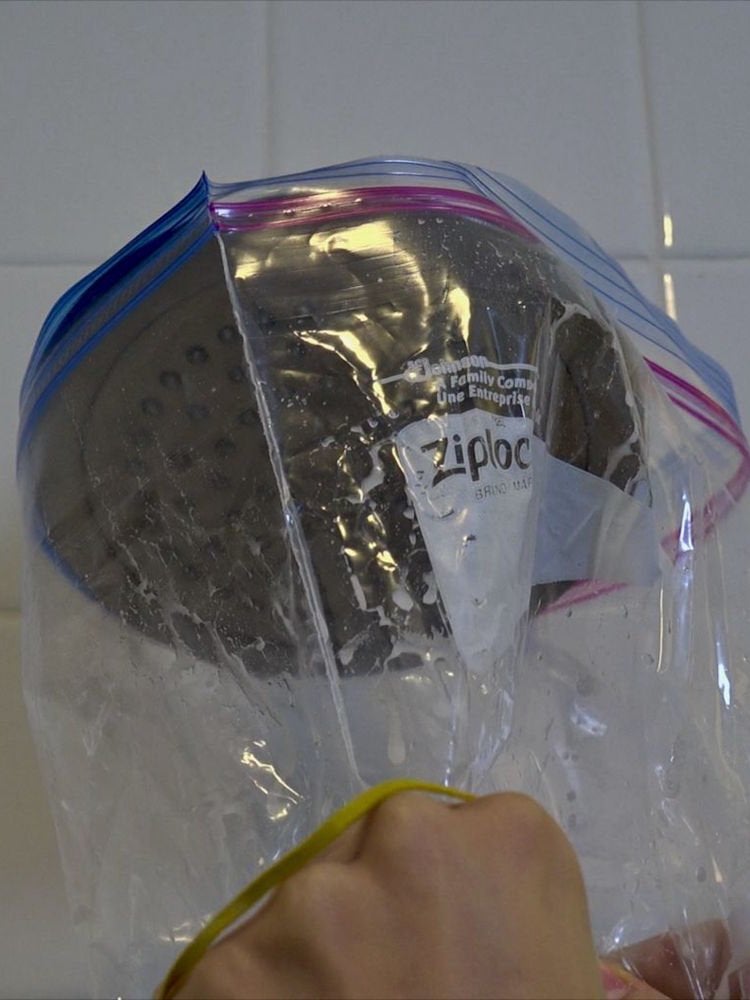
instructables.com via MotherDaughterProjects under Creative Commons
Got a clogged shower head? Put boiling water in a bowl with 1/2 cup of vinegar. Soak the shower head for 10 minutes and watch those clogs disappear. If you can’t remove the head, partly fill a plastic bag with full-strength vinegar and tape it over the fixture. Let it sit for an hour and remove, and you’ll be shower-ready!
Remove Rust
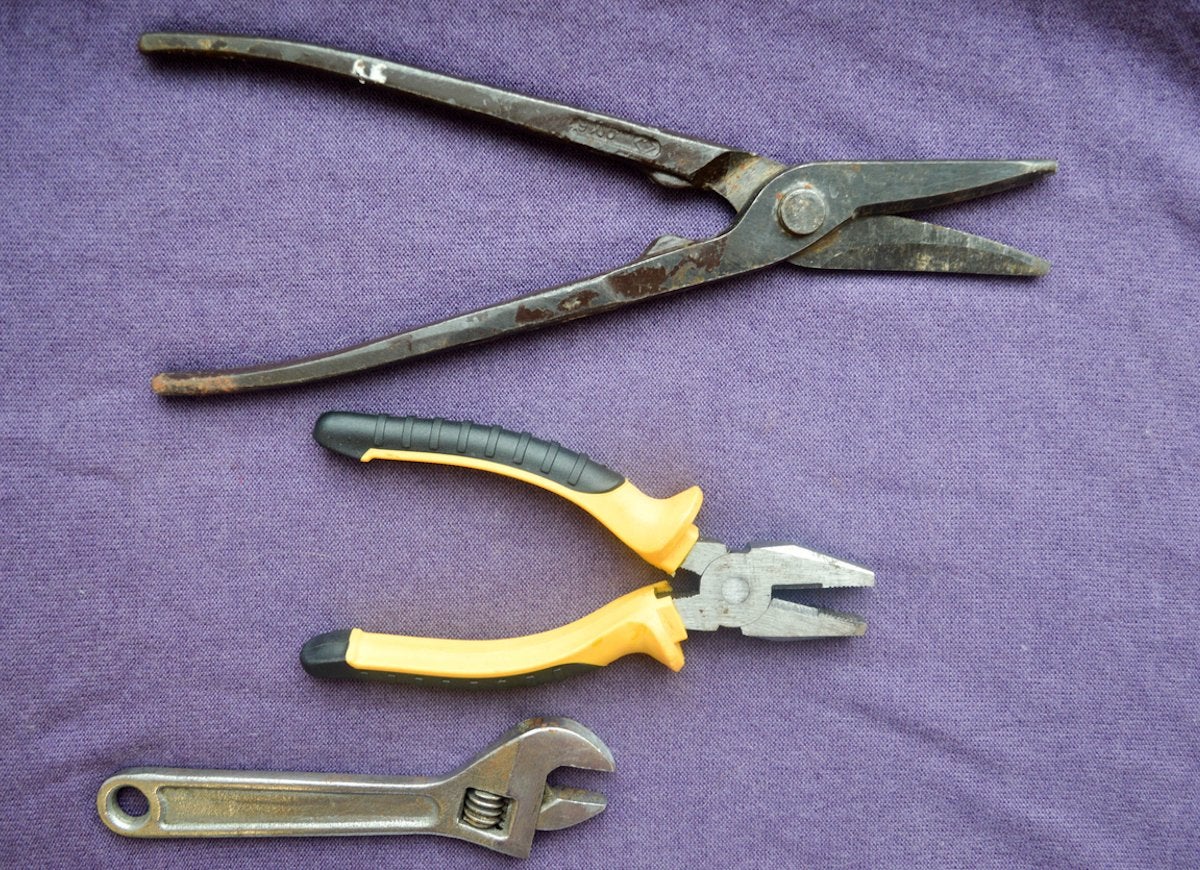
Renew rusty tools by soaking them in full-strength vinegar for several days. Once the rust dissipates, rinse and dry them well. This method also works well for screws and bolts.
Clean Your Wood Floors
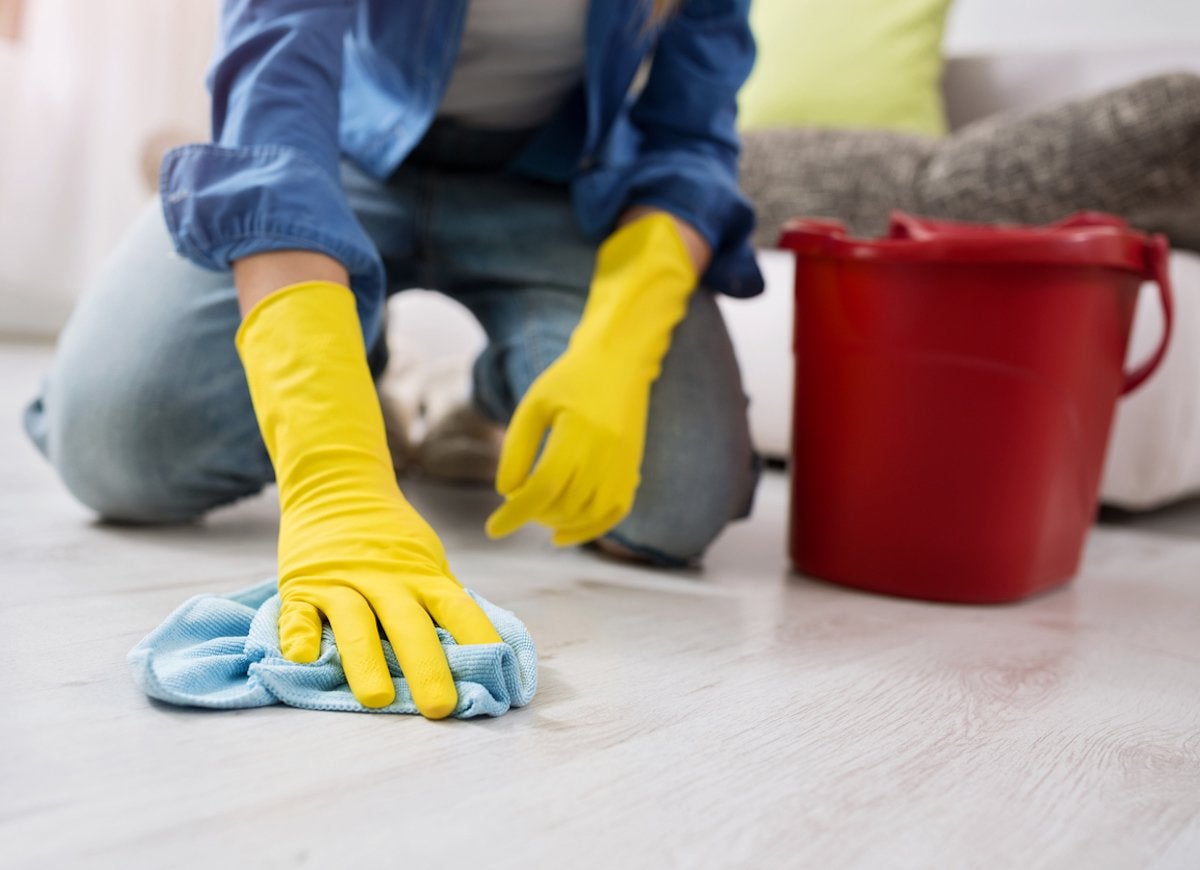
Wash your hardwood or prefinished floors the old-fashioned way. Add 1/2 cup vinegar to 1 gallon of hot water and mop or scrub as usual (make sure to barely wet your mop or cloth). To lessen the smell of vinegar, add a drop or two of essential oil to your mix. Lemon- or lavender-scented oils are excellent options. Make sure to dry the floor completely with a towel afterward.
Tip: Don’t try this technique on waxed floors because it will strip off the wax finish.
Save a Dried-Up Paint Brush
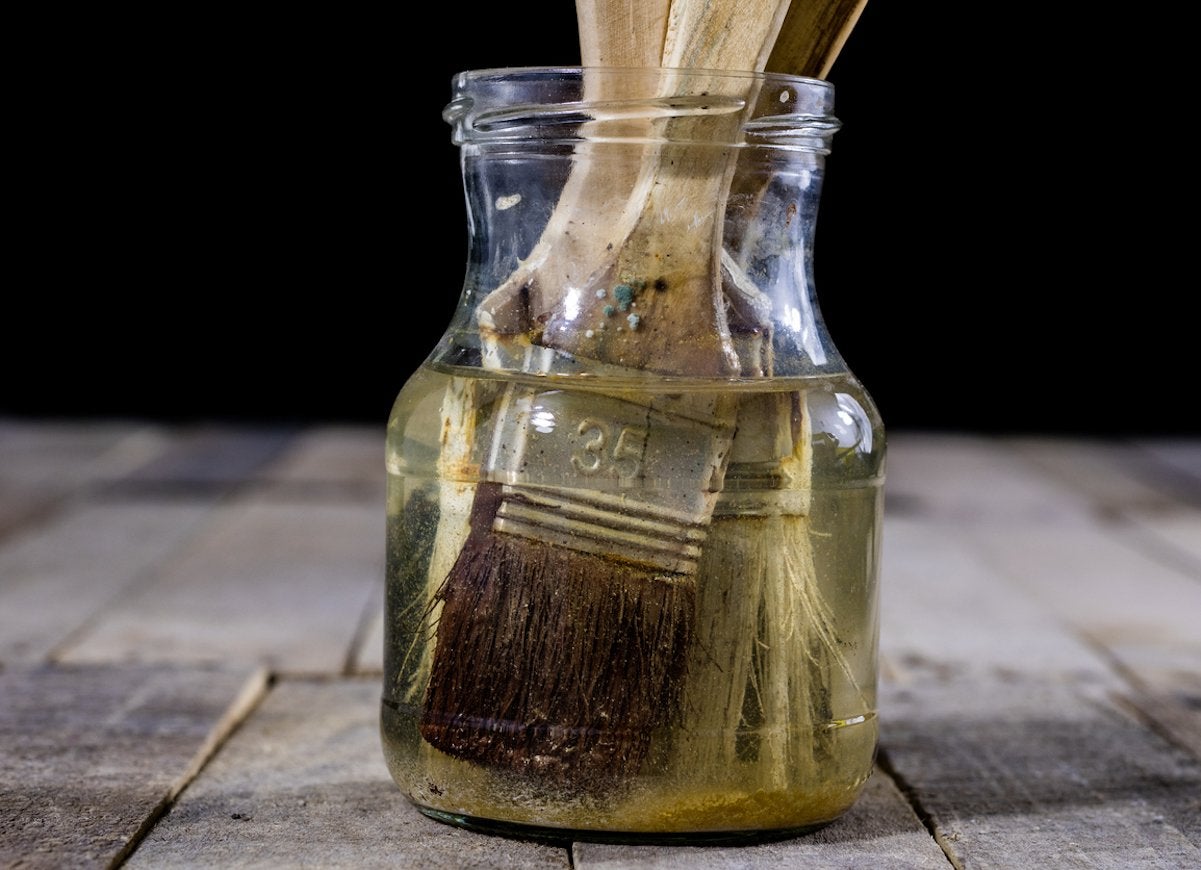
Don’t throw that synthetic paint brush away just because it’s caked with dried paint. Soak it in a cup of vinegar until the bristles loosen up. Then wash it in warm, soapy water. Still stuck together? Boil it in vinegar for 10 minutes and follow up with another soapy water bath. Your paint brush should return to its old pliable, useful self.
Remove Smoke Odors
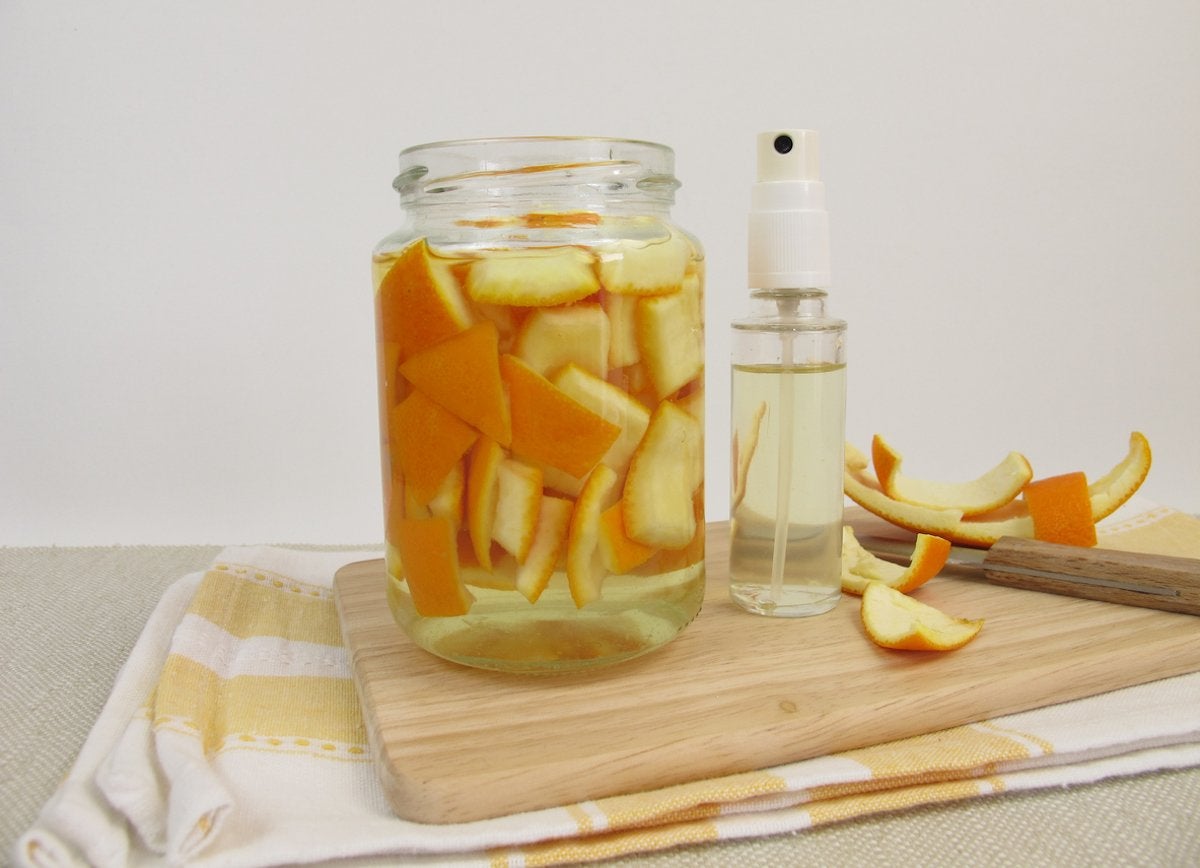
Tar and resin from cigarette smoke can stick to furniture and leave an odor long after the smoke evaporates. To break through and eliminate that icky residue, spray orange-infused vinegar onto hard surfaces, let it sit and then wipe it down with a dry cloth. You may need to repeat the process a few times if the situation is super stinky. Avoid spraying this solution onto fabrics.
Clean Ceramic Tile
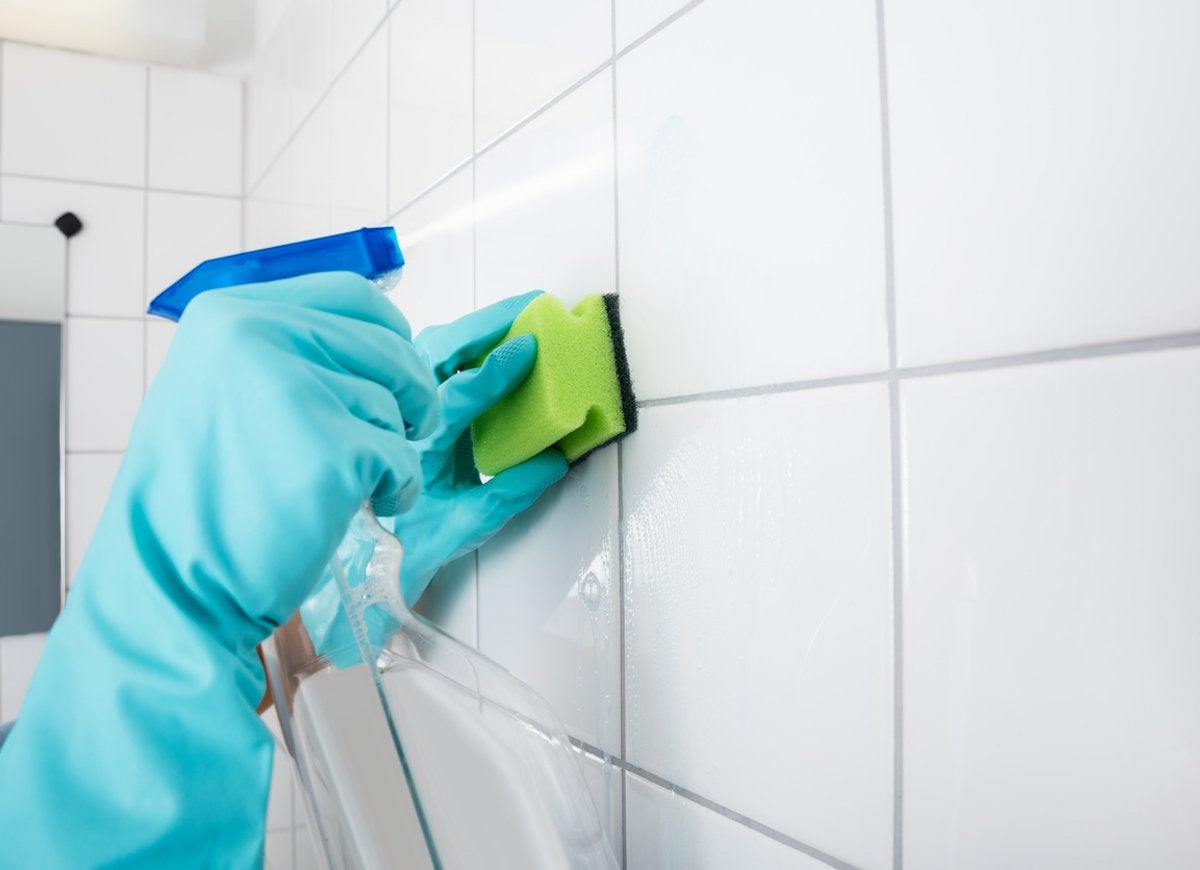
Make your own cleaning solution to freshen up dingy tiles around tubs and sinks. Just add a 1/2 cup vinegar, a 1/2 cup ammonia, and a 1/4 cup borax to a gallon of water. Scrub ‘em up, and let ‘em shine! Rinse thoroughly with water and allow the tile to air dry.
Test Your Soil
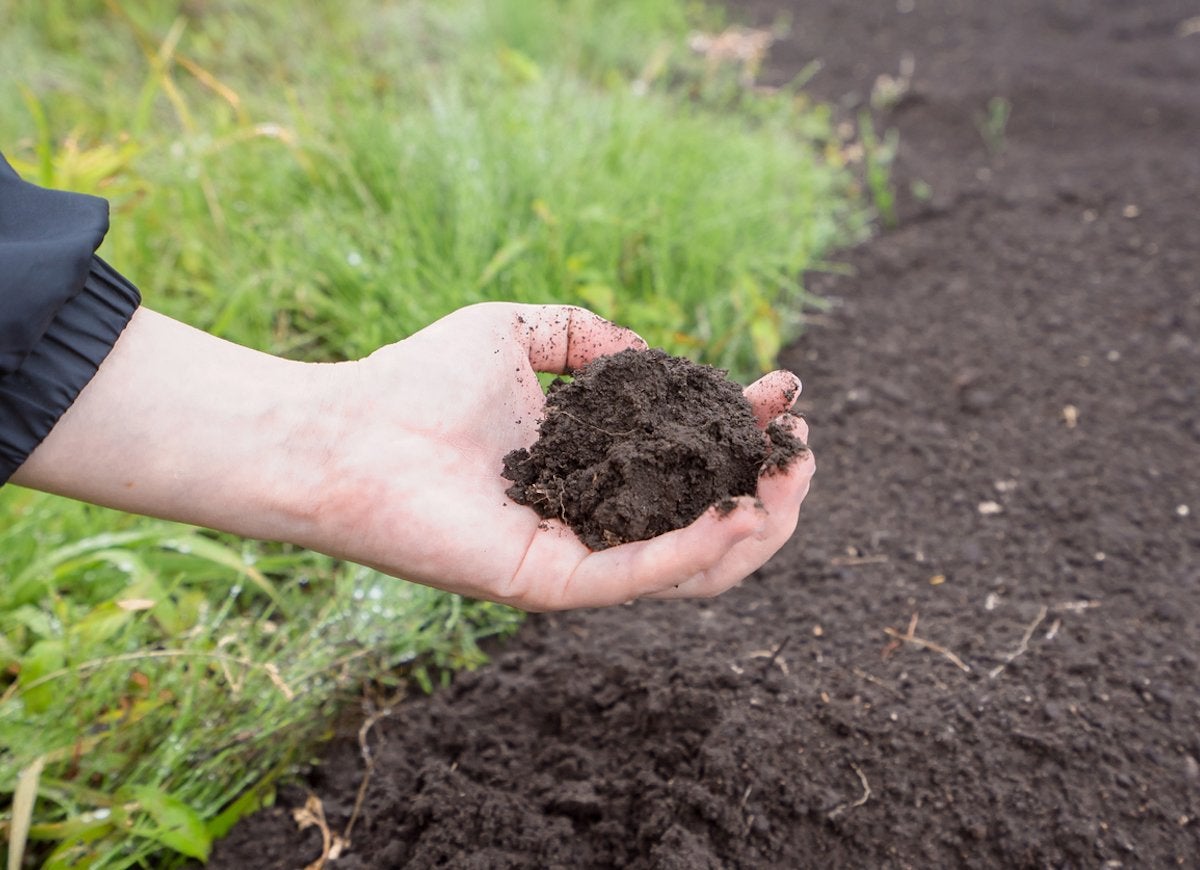
Conduct a quick, inexpensive test for excess alkalinity in your soil by putting some dirt in a container and pouring about 1/2 cup of vinegar into it. If the soil fizzes or bubbles up, it’s too alkaline. Mix some peat moss or sulfur into your soil to make it more pH neutral.
Unclog a Drain
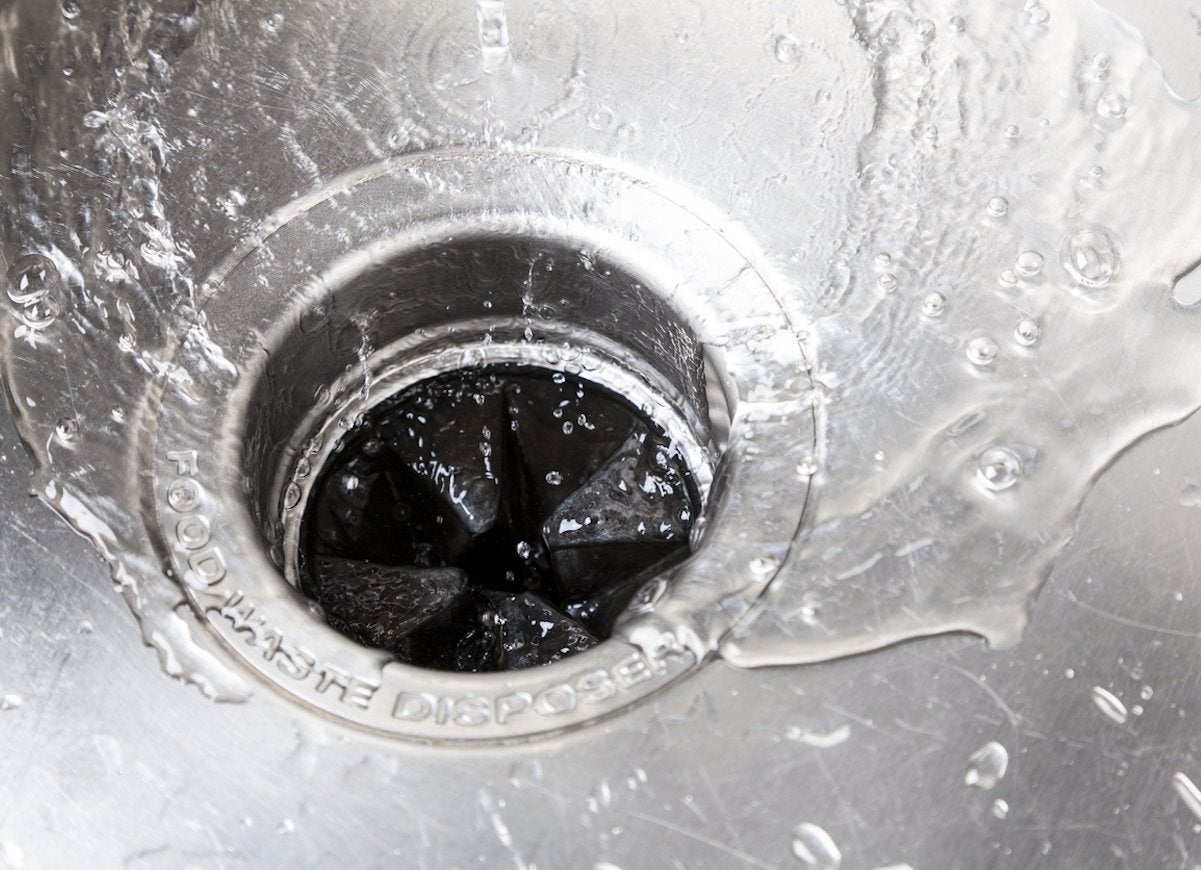
Clear a clogged drain by pouring a 1/2 cup of baking soda into it, followed by 1 cup of white vinegar. It will bubble and foam, and once that stops, flush the drain with hot water. After about 5 minutes, rinse with cold water. This approach is effective, nontoxic, and less damaging to your pipes (and wallet!) than commercial drain cleaners.
Sanitize the Cutting Board
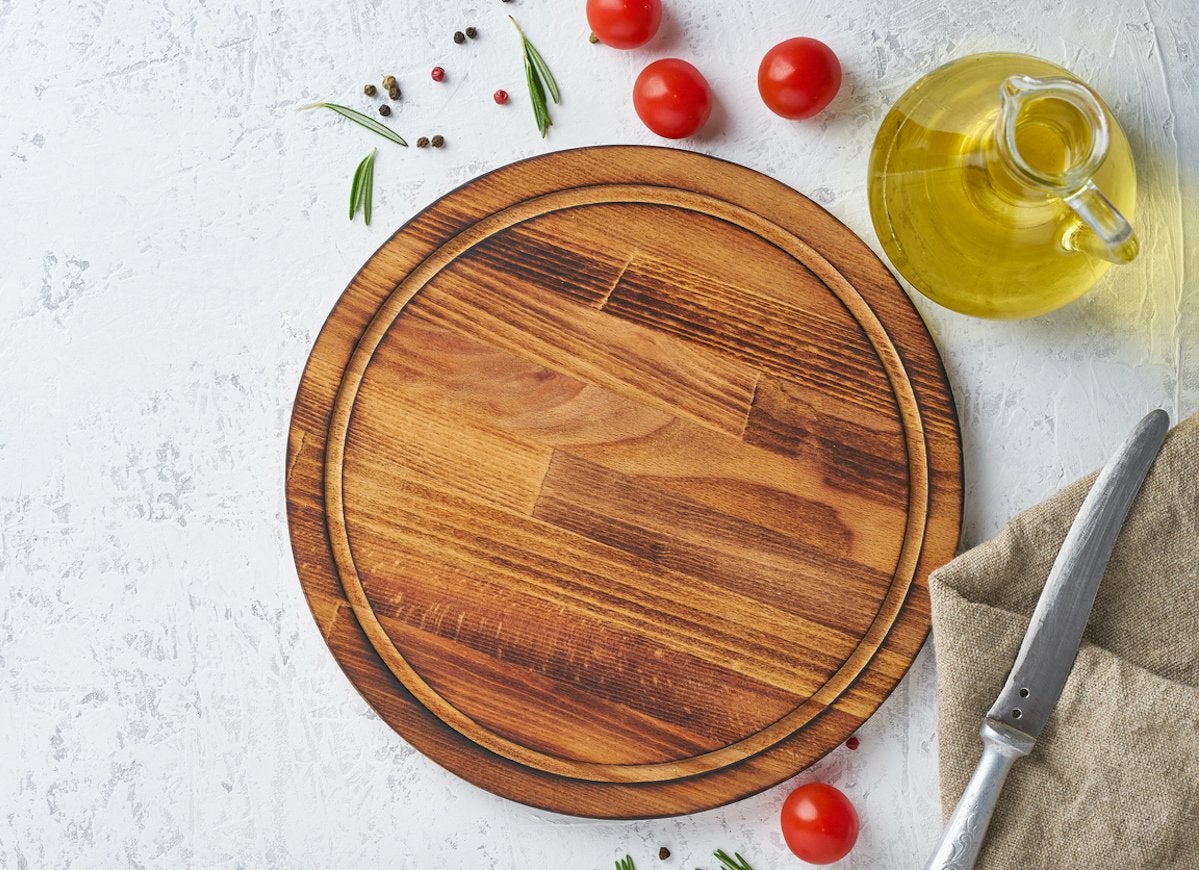
Unlike your plastic cutting board, you can’t just stick your wooden cutting board in the dishwasher because water warps wood. To properly clean a wooden cutting board, spray it with undiluted white vinegar, let it sit for no more than 5 minutes, and then wipe it off with a damp cloth.
Extend the Life of Flowers
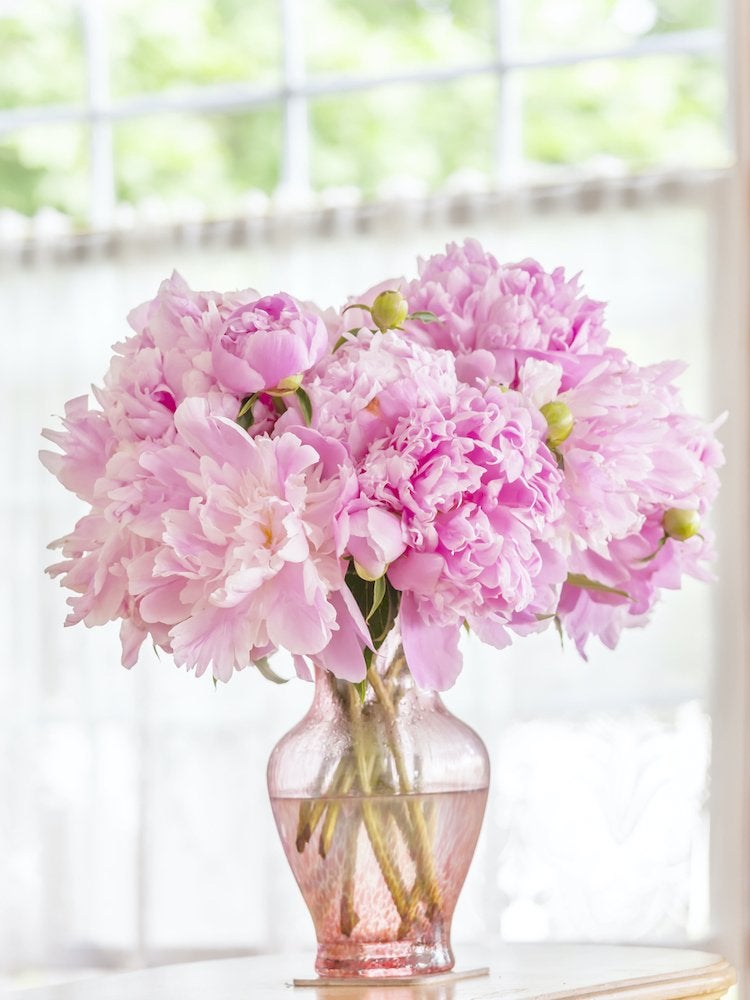
Enjoy fresh-cut flowers for as long as possible by adding equal parts white or apple cider vinegar and sugar—2 tablespoons is good to start with for an average-sized vase—to the water to extend the life of flowers. The vinegar lowers the pH levels of the water and prevents bacteria, and the sugar feeds the flowers.
Clean the Coffee Maker
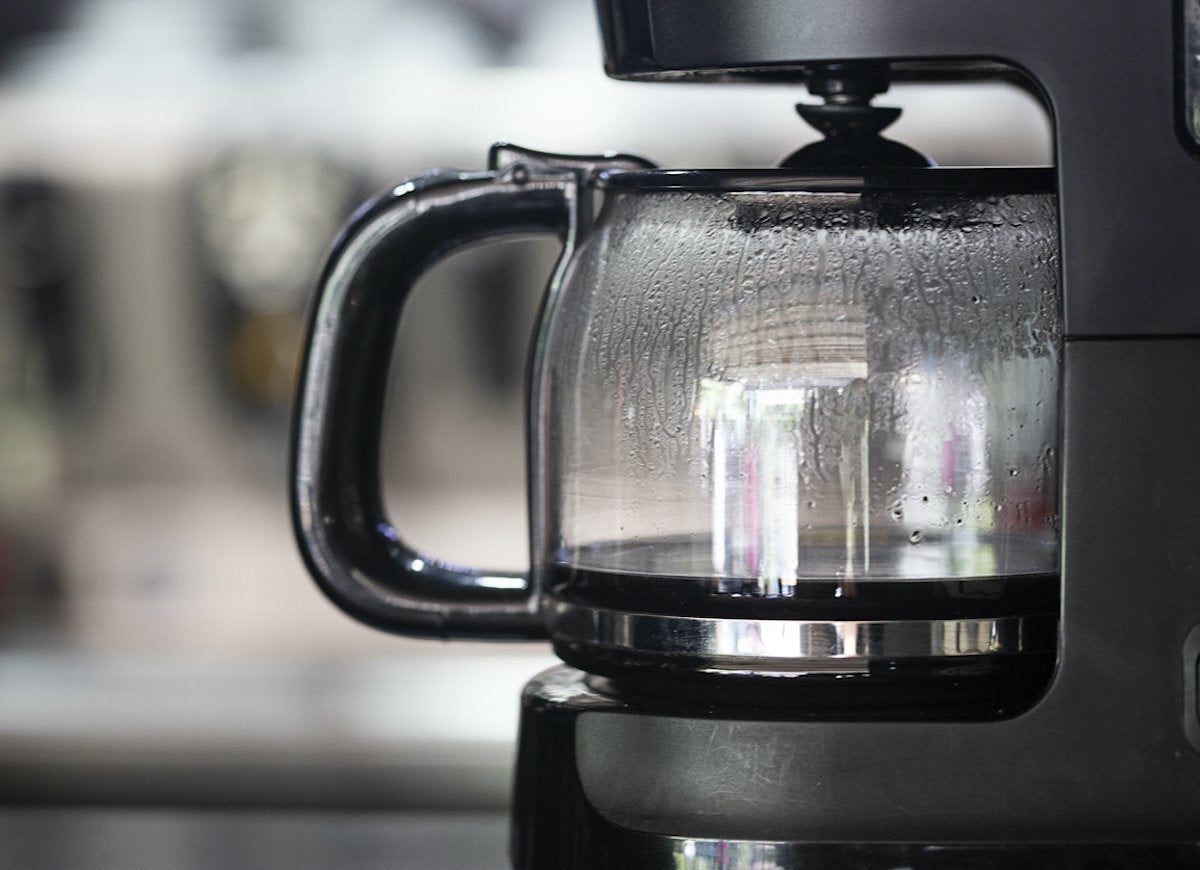
Mineral and coffee oil buildup can harm the taste of your coffee, which is why it’s important that you clean a coffee maker every 3 to 6 months. The good news is this is an easy, set-and-forget task to accomplish: Fill the coffee maker’s water chamber with equal parts water and white vinegar and start the brew cycle. Halfway through, pause the cycle to let the vinegar work its magic cleaning and disinfecting. Wait 30 minutes, then allow the cycle to finish.
Refresh and Brighten Your Laundry
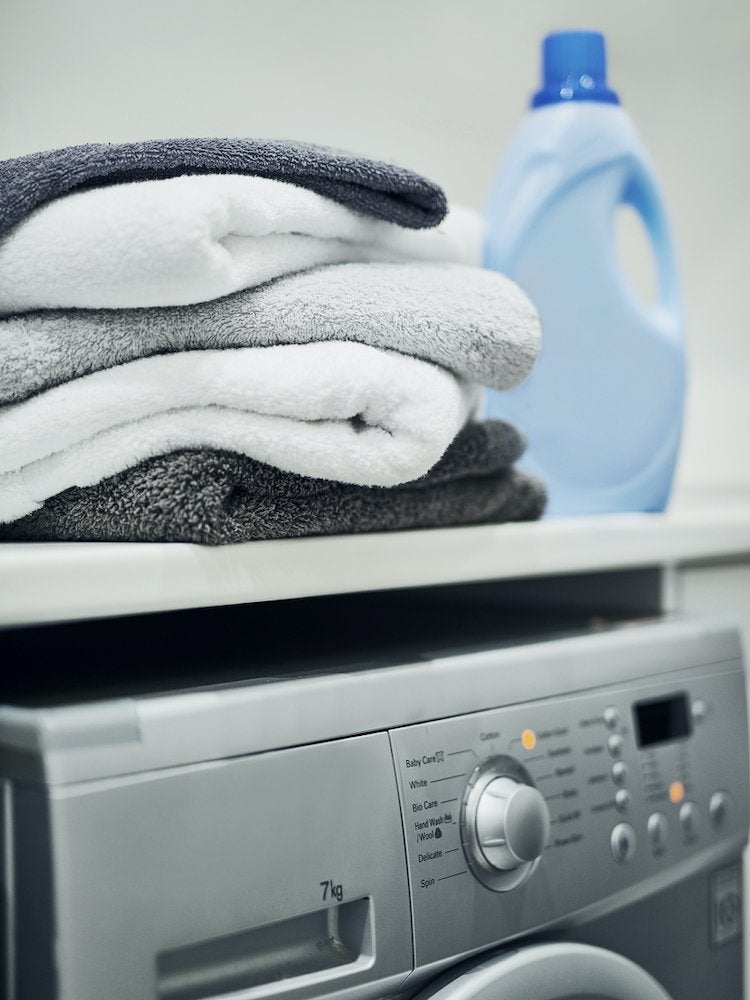
Are your bath towels starting to feel gross? Bacteria left behind after showering and built-up laundry detergent can make towels start to stink. To get them smelling fresh again, run them through a cycle replacing the detergent with 1 cup of distilled white vinegar.
Vinegar can also do wonders to brighten white clothes and linens that have gone dingy. Simply add ½ cup of vinegar to the drum of your washing machine alongside your preferred laundry detergent. The vinegar will remove yellowing and make white fabrics look like new. Acidic vinegar can wear the rubber gaskets in your washing machine, however, so think carefully about using it too frequently.
Clean the Windows
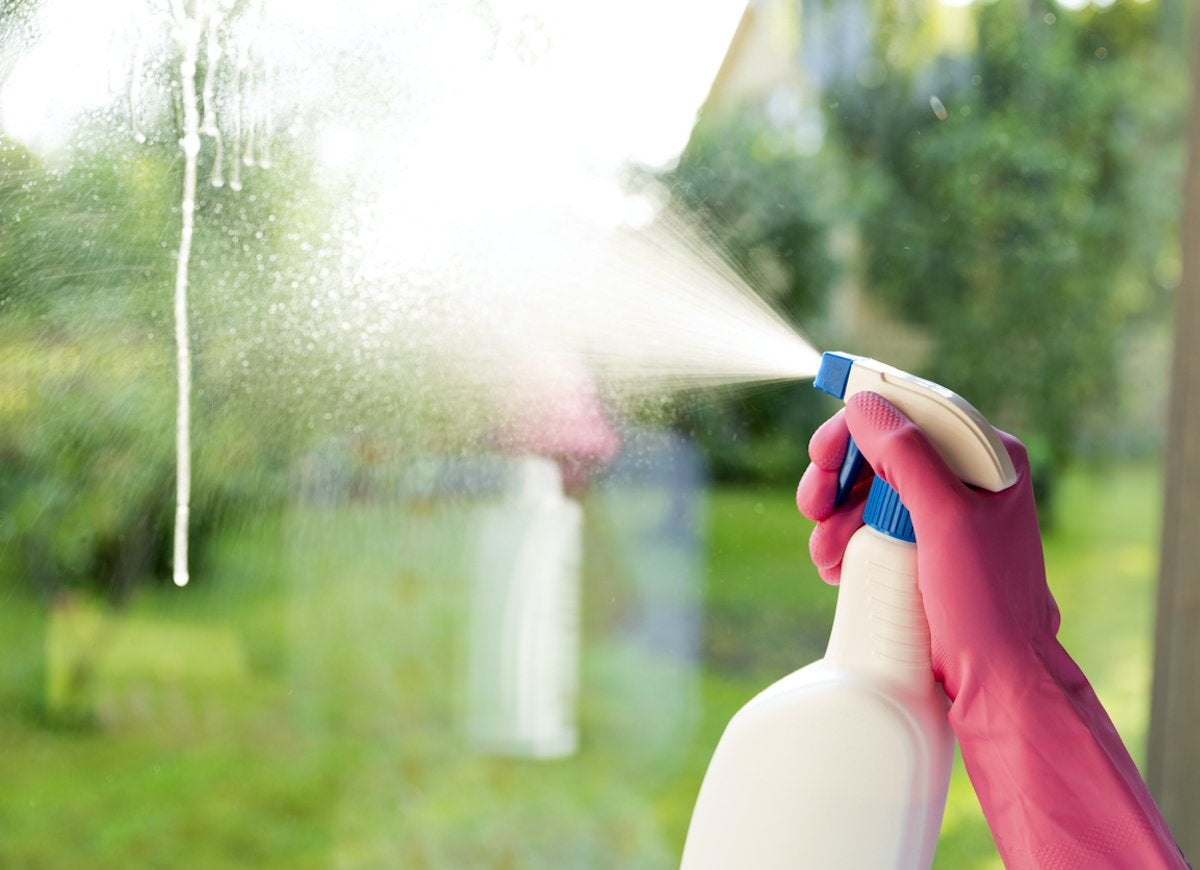
Achieve streak-free, shining windows by making your own window cleaner. All you need to do is combine one part white vinegar to two parts water in a spray bottle. It’s a simple and effective recipe!
Clean the Microwave
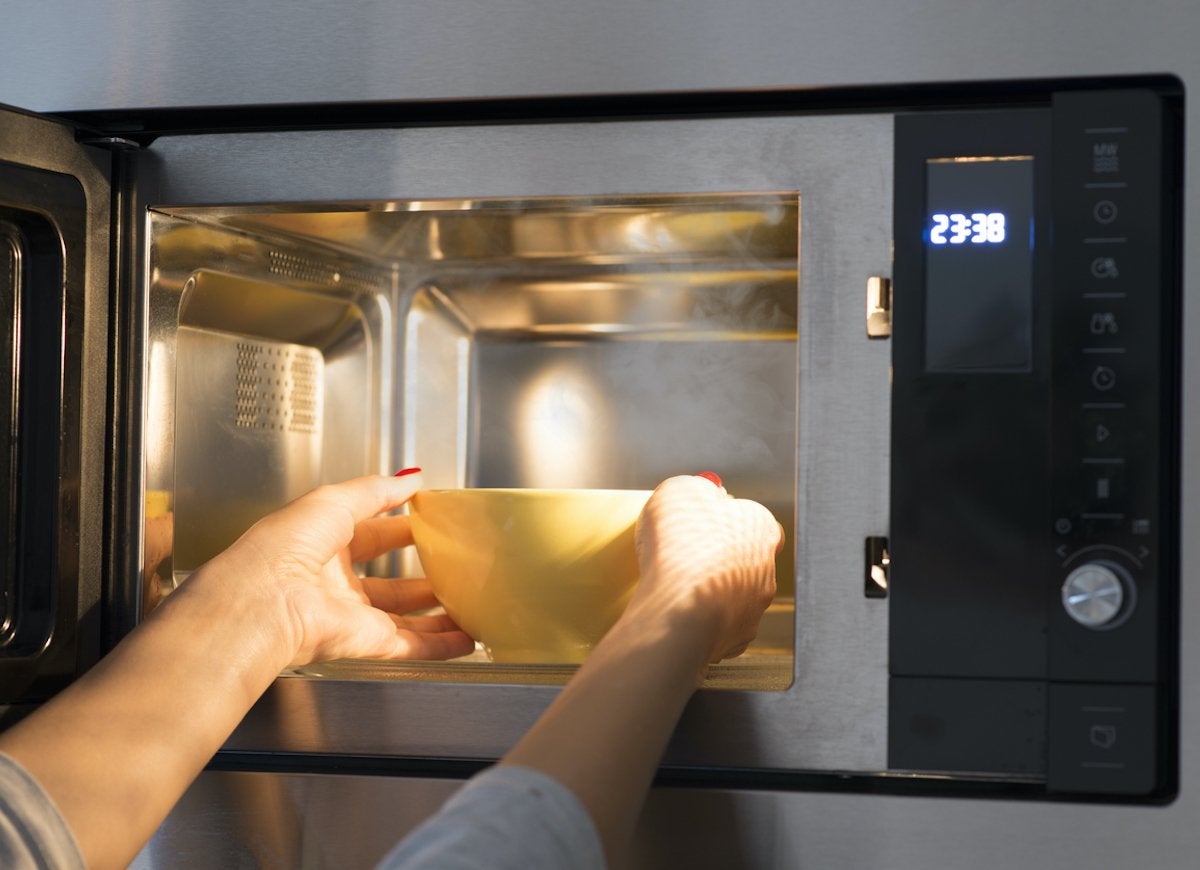
Spills and splatters are inevitable in the microwave. Before you get scrubbing, make cleaning the microwave easier by loosening up the grime. Fill a bowl with equal parts white vinegar and water, and pop it into the microwave for 5 minutes or until it boils. Once the time is up leave it inside for another 3 to 5 minutes to allow the steam to soften things up. Then you can grab a cloth or sponge to wipe it away.
Kill Weeds
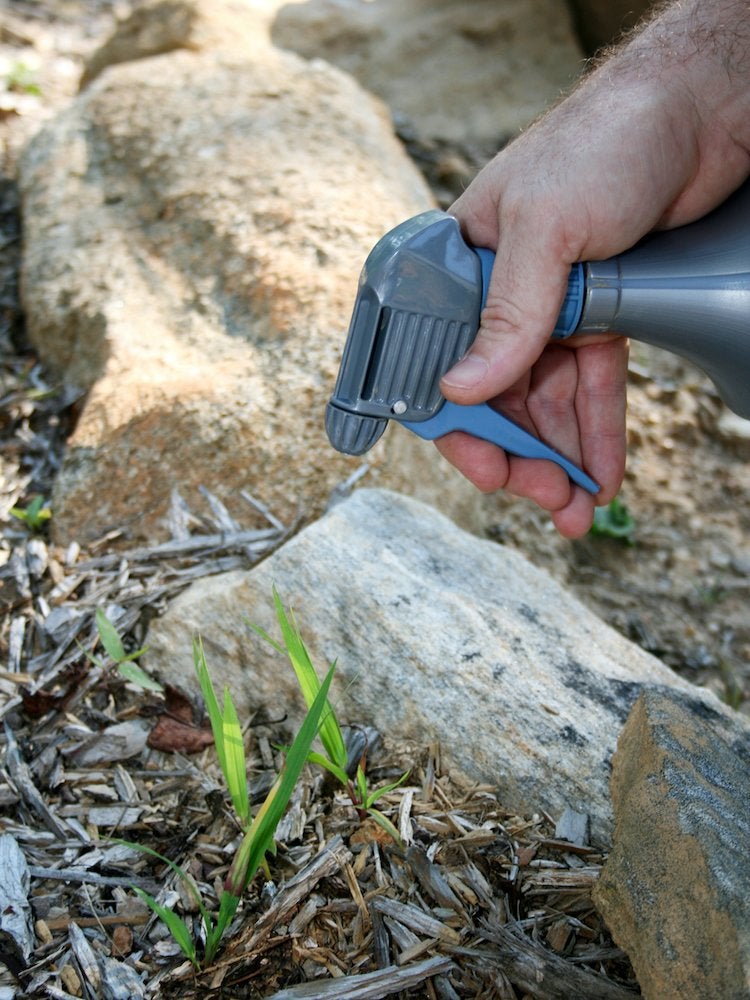
Avoid using strong chemicals in the yard—instead, reach for the vinegar. You can kill weeds by spraying or brushing the leaves with vinegar. Take care not to use vinegar near plants that you want to keep since the natural herbicide can kill them, too.
Clean Stainless Steel
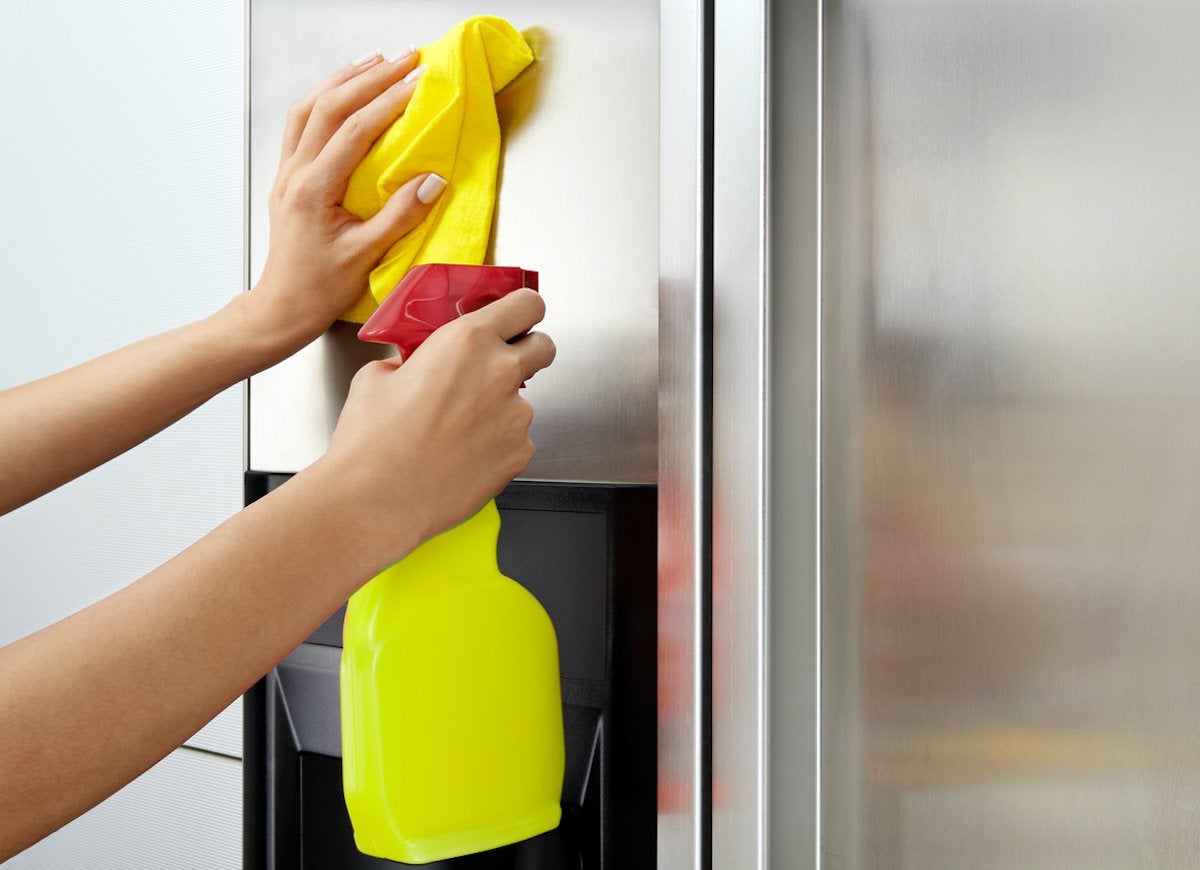
Stainless steel looks sleek until you start noticing fingerprints all over the fridge. To get rid of the prints and any other residue, spray stainless steel surfaces with vinegar and then wipe down with a microfiber cloth. Finish off with a small amount of mineral oil to make the stainless steel shine.
Deodorize the Washing Machine
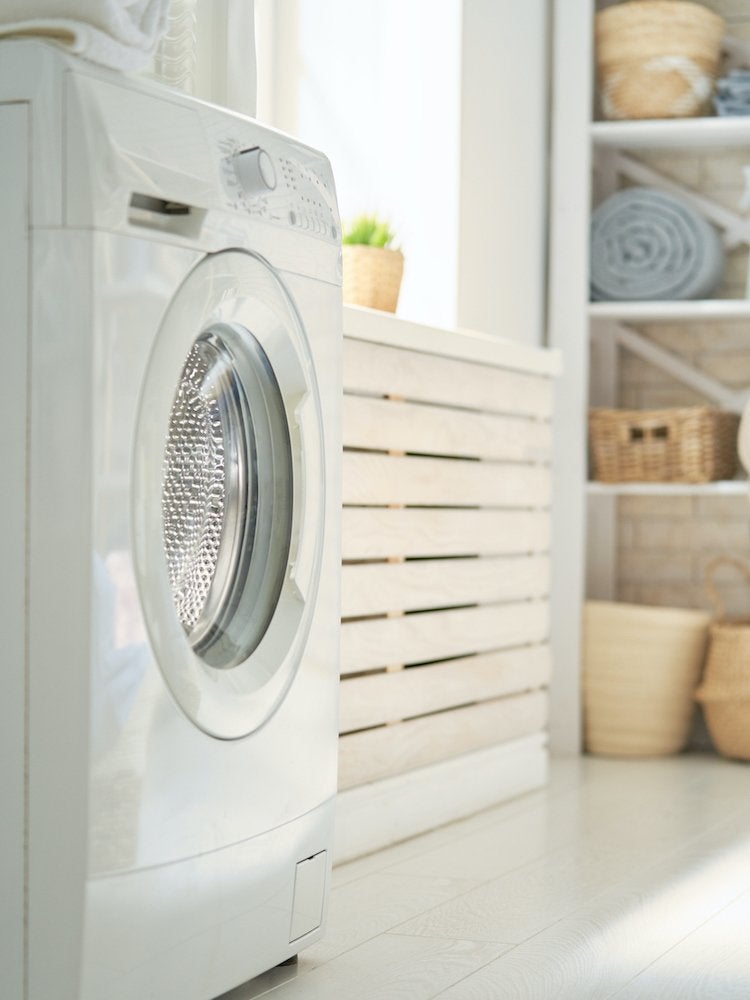
The detergent and water cycling through your washing machine doesn’t cut it when it comes to cleaning the appliance. Get rid of funky smells from the washing machine by deodorizing it with vinegar. Add 4 cups of white vinegar to a top-load machine or 2 cups to a front-load model and run it on the hottest cycle. When the agitator has mixed the vinegar and water, turn the machine off and allow it to sit for 30 minutes. Once the time is up, turn the washer back on and allow the cycle to finish.
Remove Coffee Stains
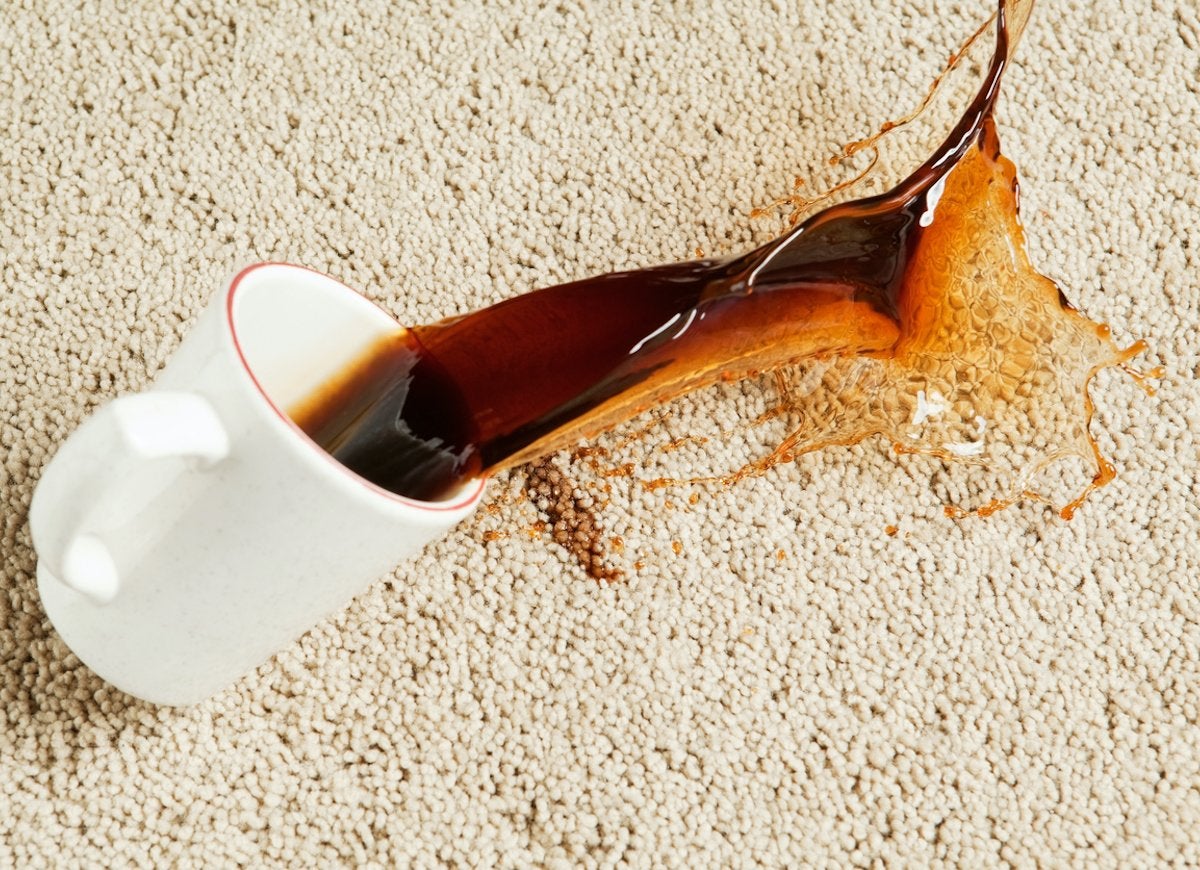
Spilling coffee already feels like a bad omen, but having it stain a shirt or the carpet is even worse. Blot the stain with a mixture of vinegar and water before it has the chance to set.
Clean a Humidifier
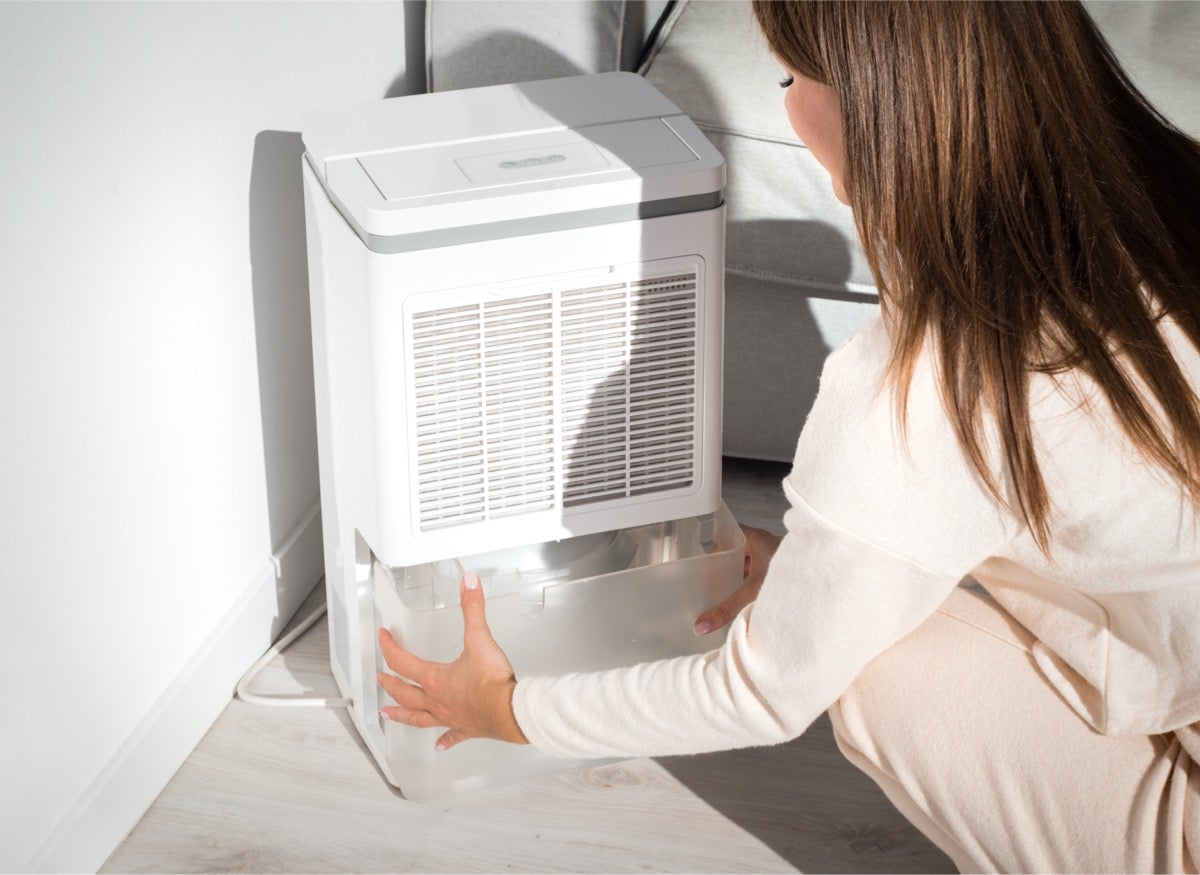
Humidifiers do an excellent job of reintroducing moisture into dry spaces, but they can become hotbeds for mold and bacteria. Cleaning them frequently is a must! The good news is that humidifier owners don’t need to invest in any specially formulated products to clean and sanitize their appliances.
To clean a humidifier, empty out the water and refill the tank with 1 cup of white vinegar and 1 cup of clean water. Shake the liquid around to ensure it comes into contact with all of the interior surfaces of the tank. Allow the mixture to sit for 1 hour before rinsing the tank with cool water.
Remove Chewing Gum
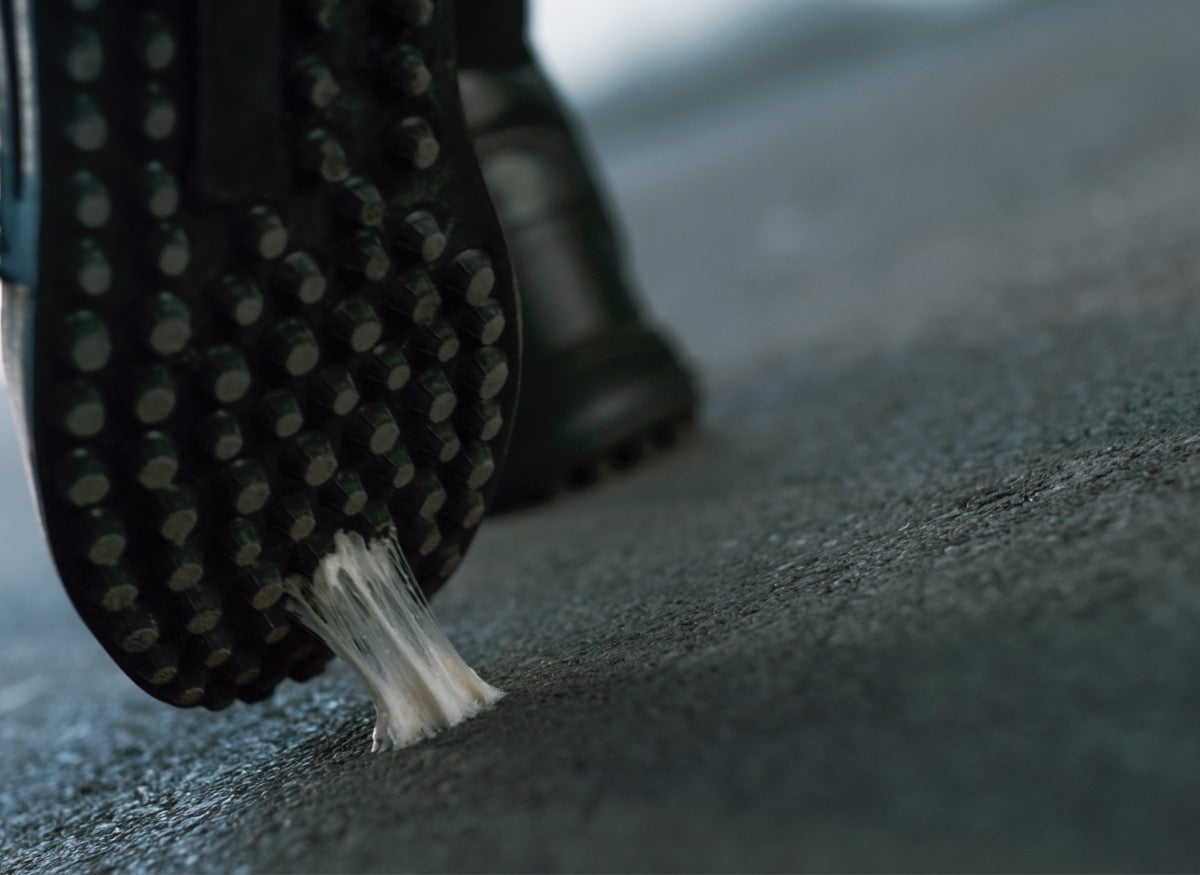
It can be frustrating to find chewing gum stuck to a piece of clothing or the bottom of a shoe. While the sticky substance can seem nearly impossible to remove, white vinegar can easily do the job. Use full-strength vinegar to rub or scrub the affected area until the gum residue disappears.
Clean a Keyboard
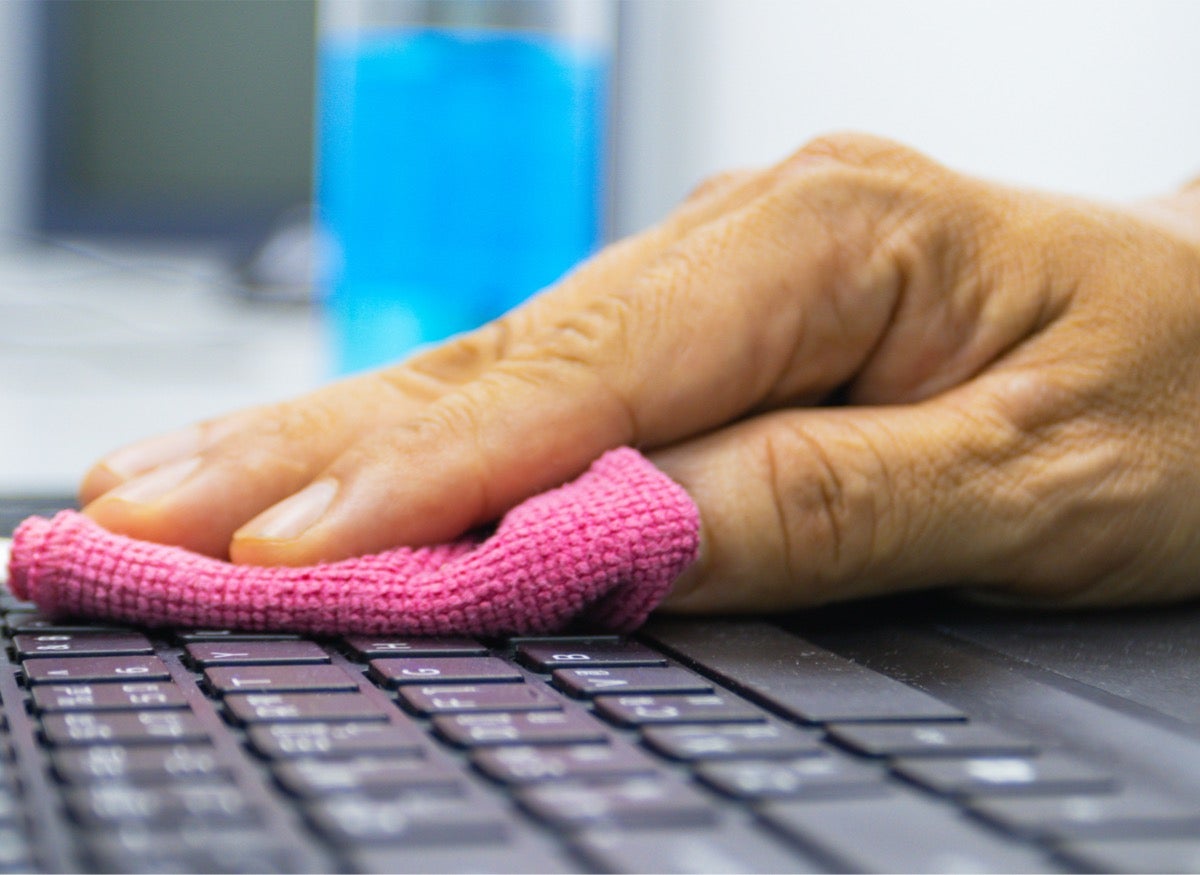
Cleaning a desktop or laptop keyboard can be tricky, and many users are rightly wary of using cleaning products on their tech gear. A mixture of equal parts white vinegar and water can, however, be an effective and safe solution for cleaning out those hard-to-reach keyboard crevasses. Dip a cotton swab into the liquid and squeeze out the excess as thoroughly as possible. Use the swab to carefully clean around each key.
Remove Pen Marks
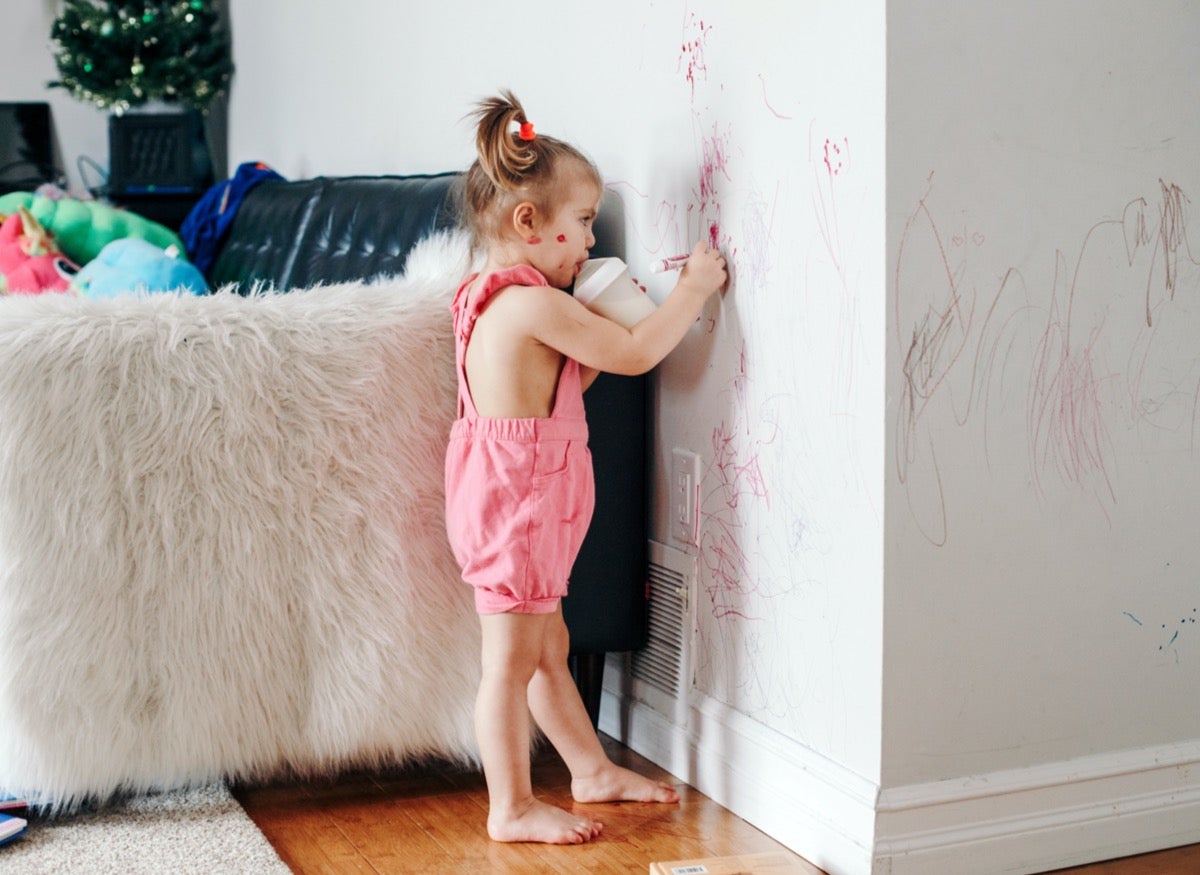
Have your kids ever gotten hold of a ballpoint pen and doodled somewhere they shouldn’t? The next time this happens, take a deep breath and grab the vinegar. Pen marks on walls, laminate furniture, and other hard surfaces can be scrubbed away using full-strength white vinegar. Use a microfiber cloth or sponge to go over the stain as needed until it fades away.
Eliminate Water Rings
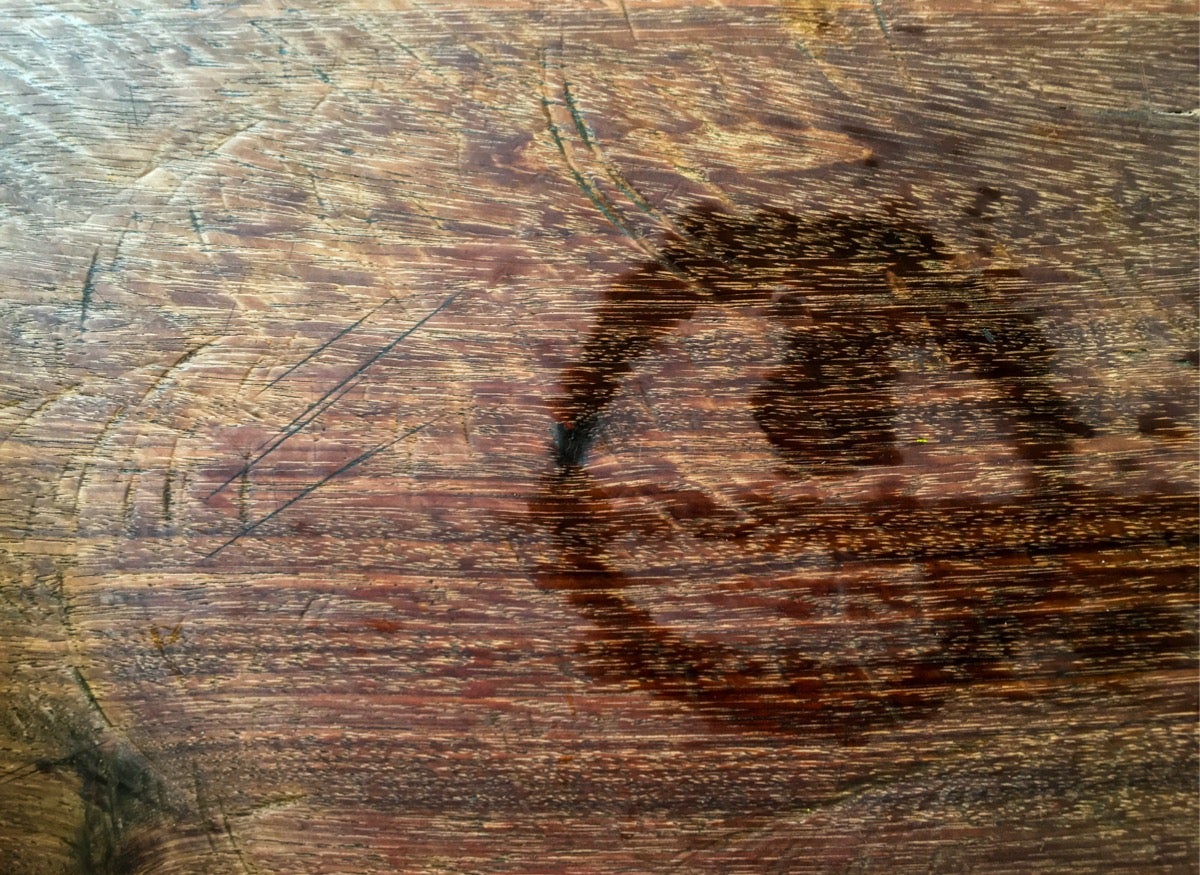
The best way to prevent water rings on wood furniture is—of course—to use a coaster, but if a guest forgets to do so and their beverage leaves a visible ring behind, there’s no need to panic. To remove the stain, create a mixture that’s equal parts olive oil and white vinegar. Use a microfiber cloth to rub it into the affected area.
Shine Silver
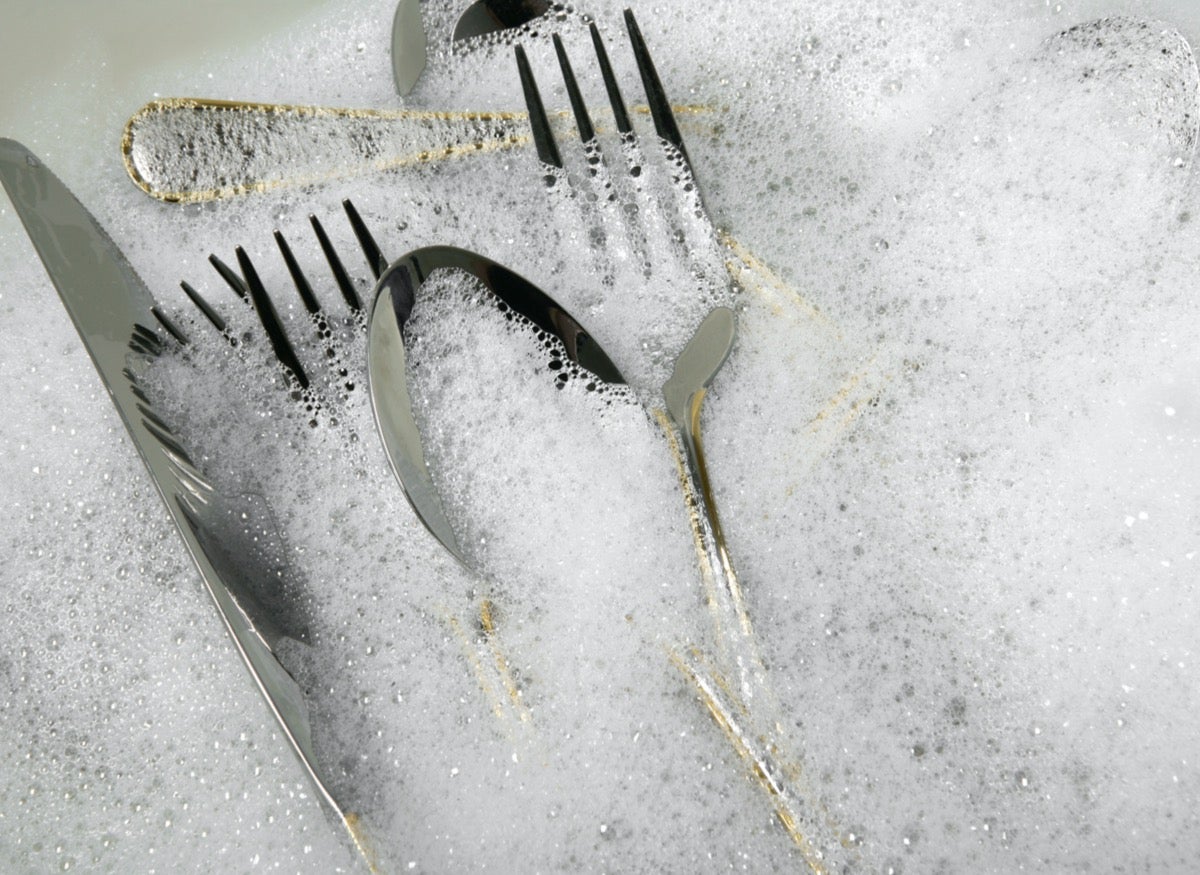
While there are plenty of commercial silver polishes that are designed to treat tarnished silver, one of the best solutions is probably already in your pantry. Silverware simply needs to be soaked in a mixture of ½ cup of white vinegar and 2 tablespoons of baking soda to restore it to its former glory. The same trick can also be used on silver jewelry.
Get Rid of Wrinkles
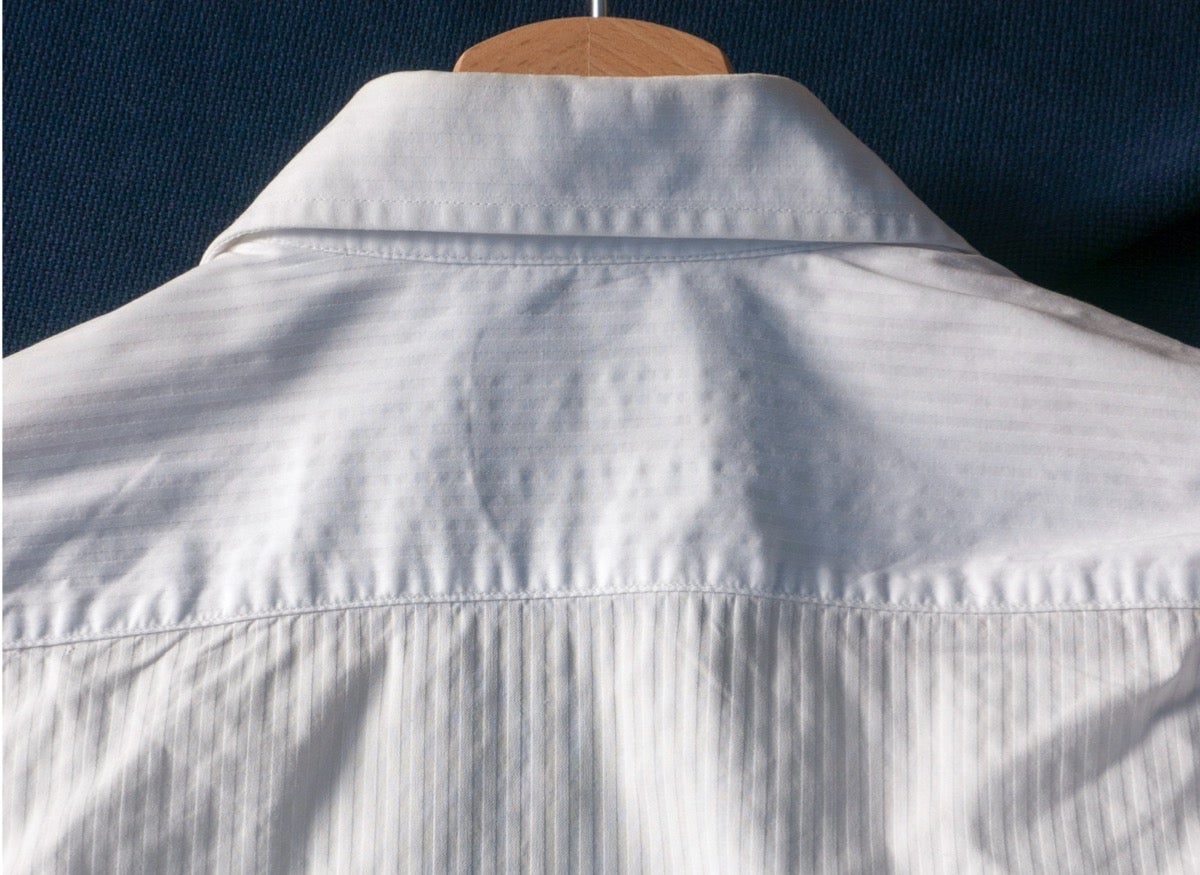
Pressing and ironing clothes can be time-consuming and tedious, so for garments that just need a quick refresh, a vinegar solution can do the trick. Mix 1 part white vinegar with 3 parts water in a spray bottle and proceed to spray the article of clothing in question until the wrinkles areas have all been lightly misted. Hang the garment to dry and the wrinkles will disappear in a jiffy.
Remove Candle Wax
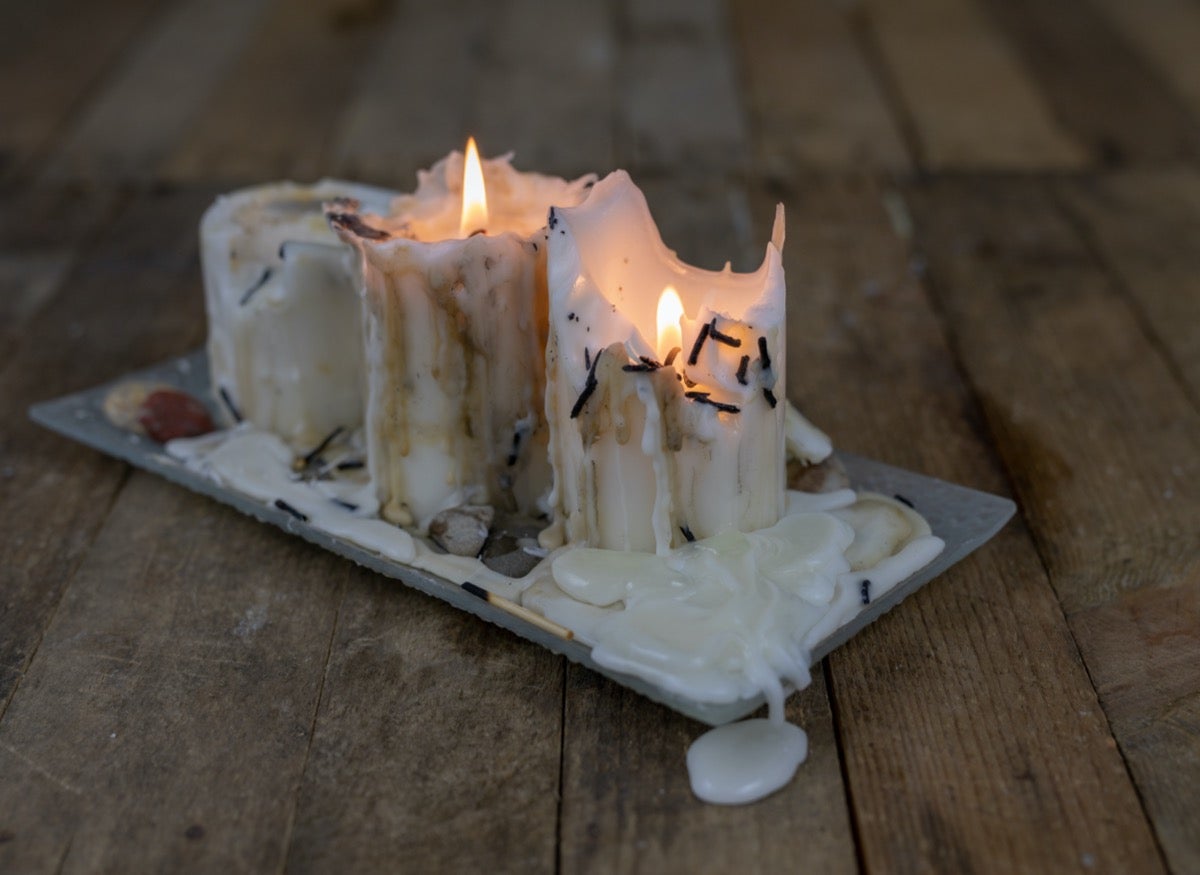
Pillar candles can be a great way to add ambiance to any room, but they can also leave a mess behind if their wax drips onto tables or other surfaces. Start by softening the wax by applying heat using a blow dryer. Use a paper towel to remove as much of the melted candle wax as possible, then use a mixture of white vinegar and water to get rid of any waxy residue that’s left behind.
Remove Salt Stains
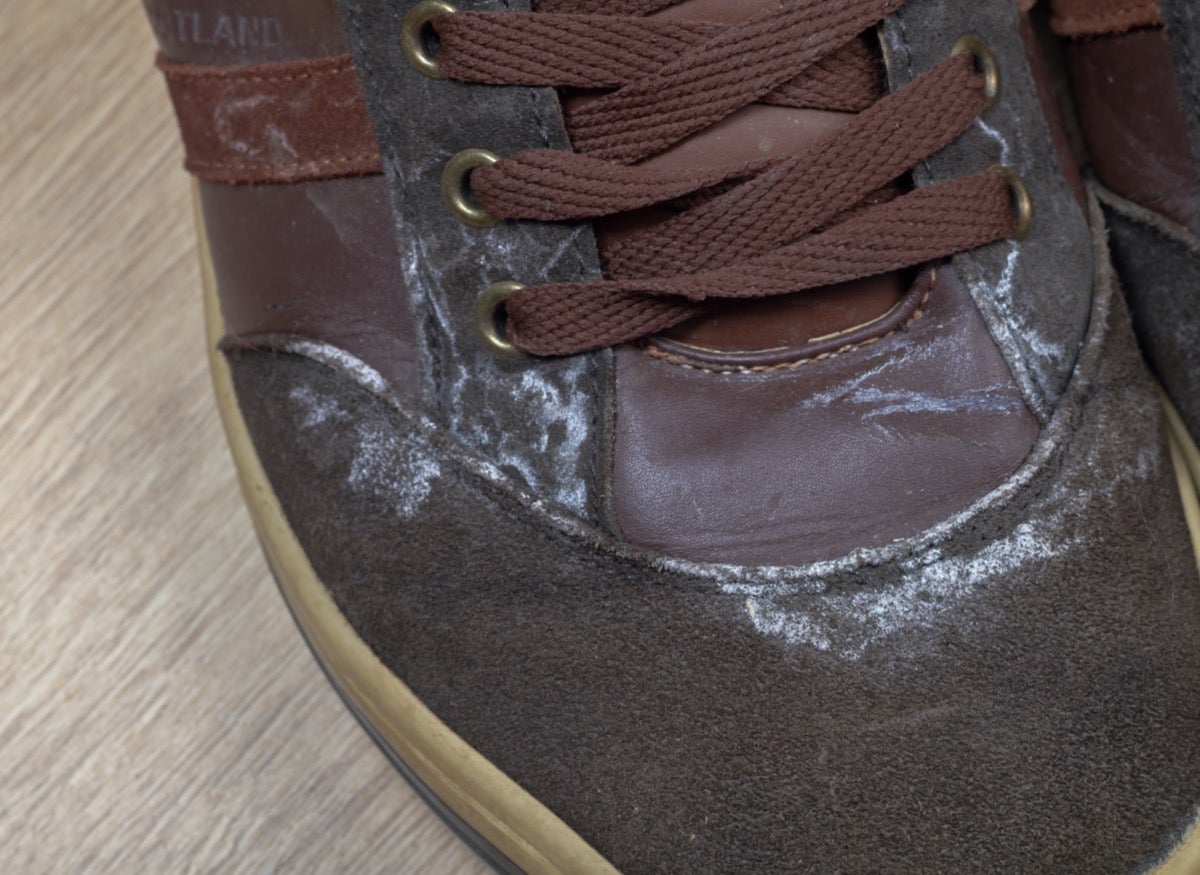
If you live in a region that gets lots of snowfall, you’re probably familiar with the perennial struggle of removing salt stains from winter boots. While salt helps to prevent slipping and sliding on roads and sidewalks, it leaves behind a chalky white residue on shoes. Mix 1 tablespoon of white vinegar into 1 cup of water, then use a microfiber cloth to wipe off your footwear.

Meet the 2025 Tools of the Year
After months of scouring the market and putting products through their paces, we’ve named the best of the best in new tools. There’s something for everyone, from veteran pros to average Joes.